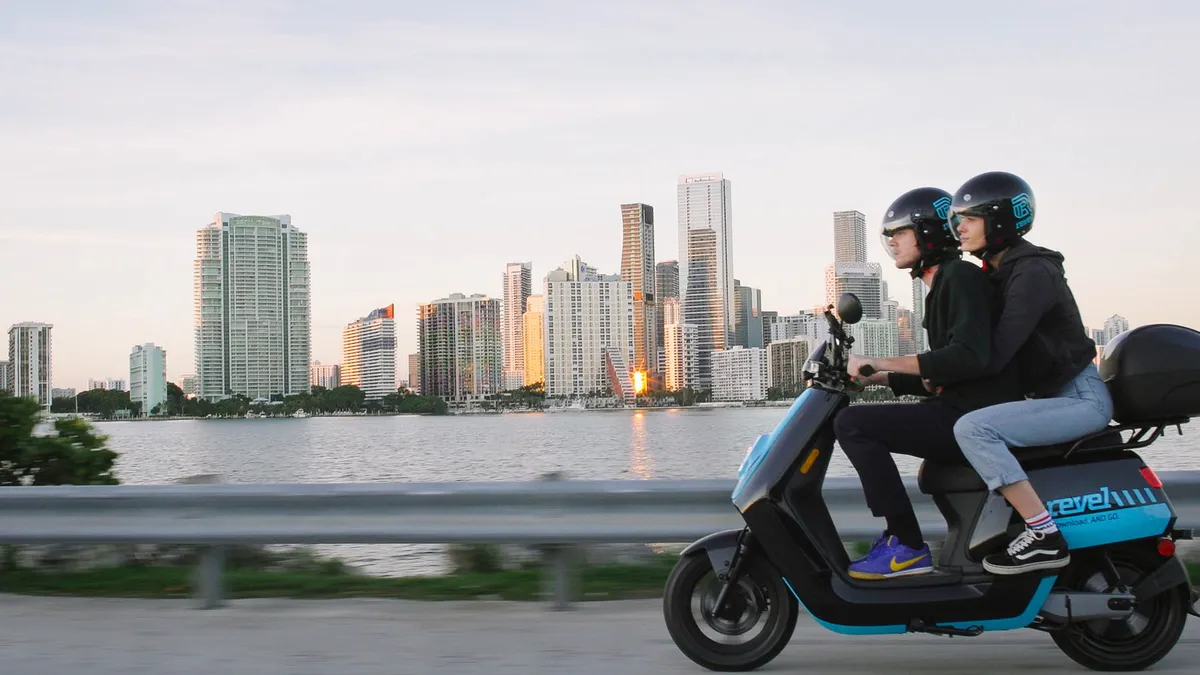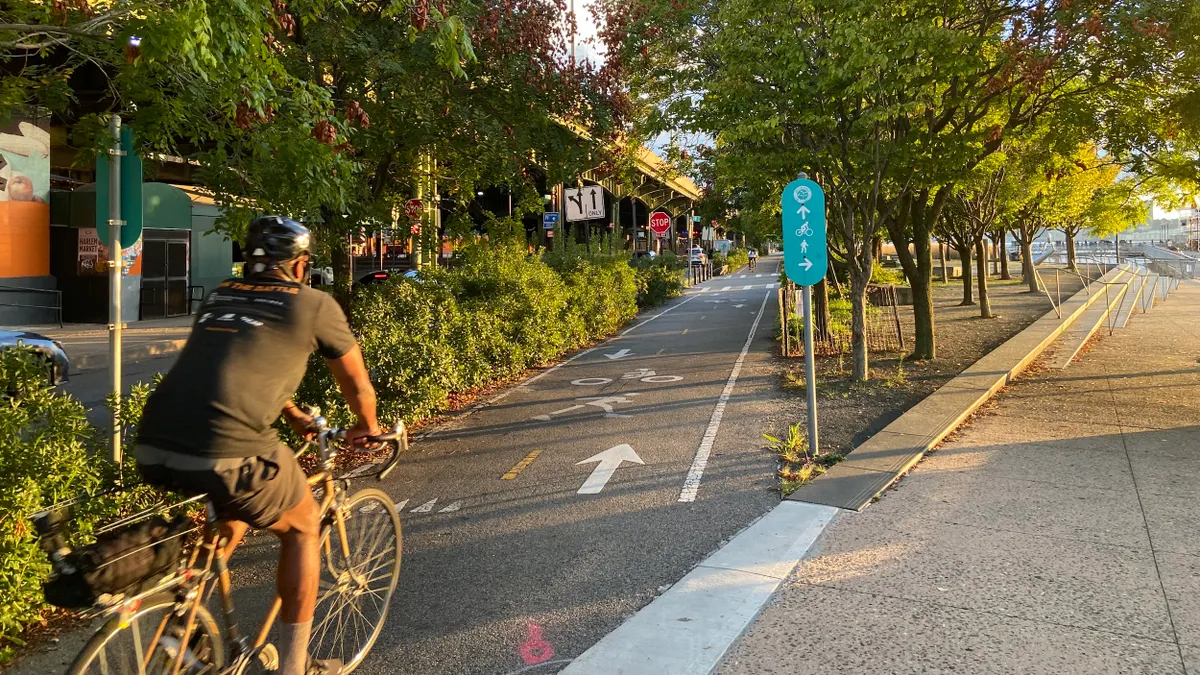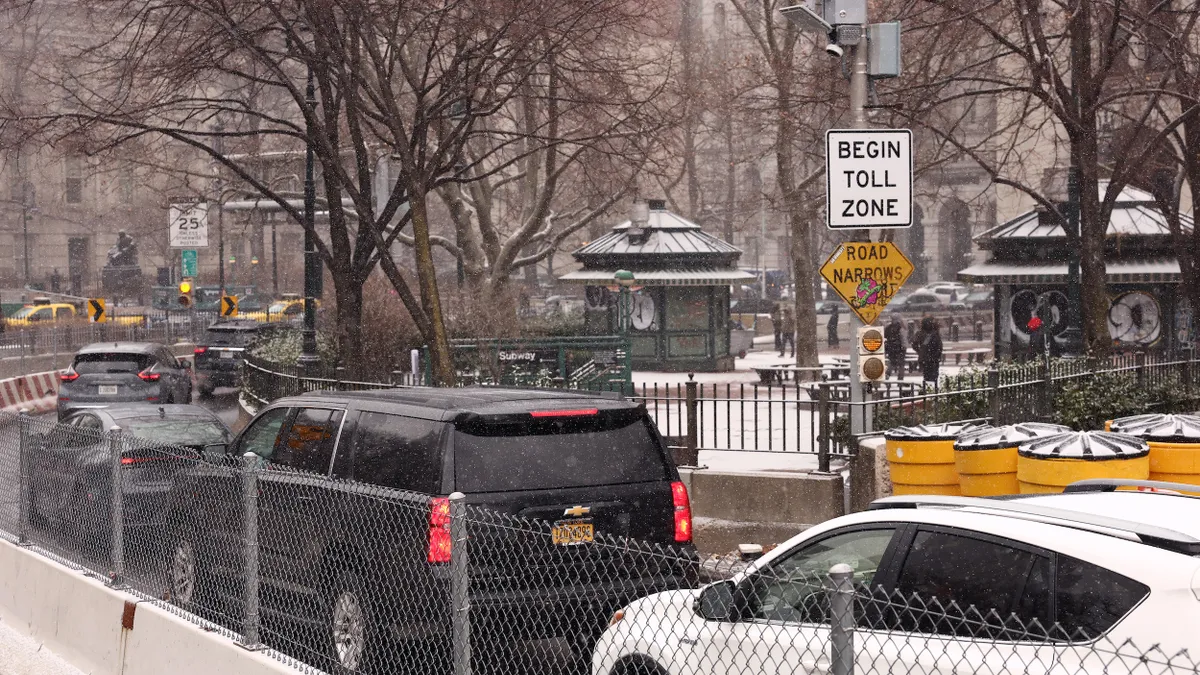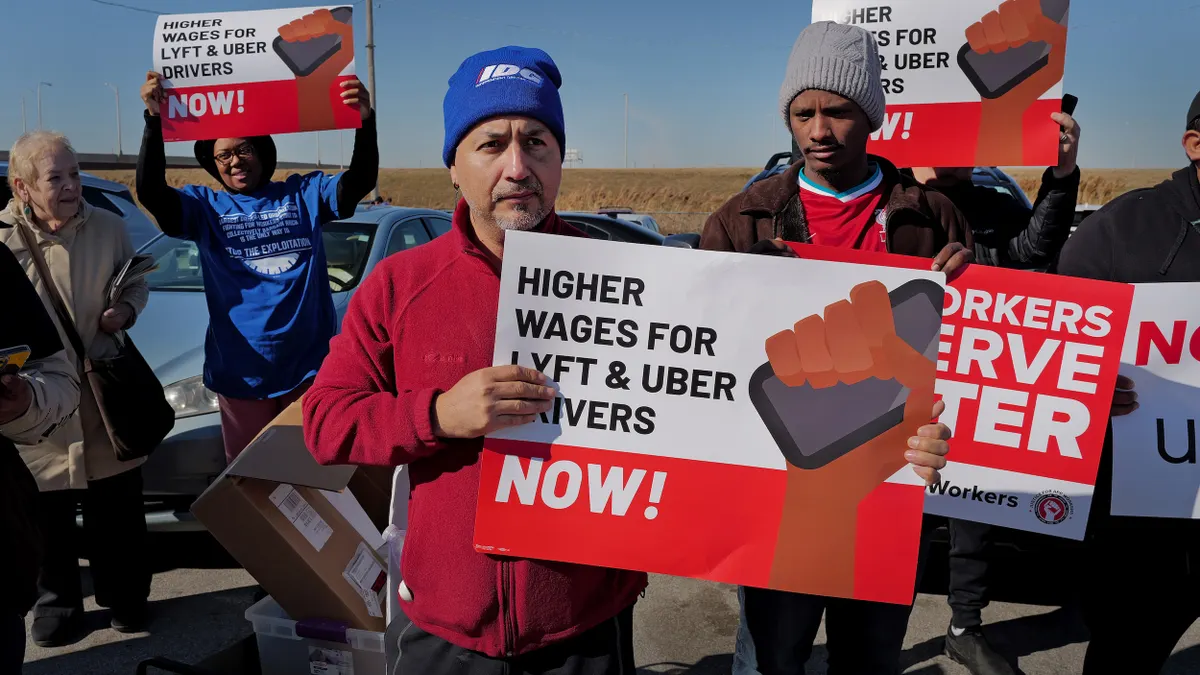When mobility startup Revel deployed its shared electric mopeds across Brooklyn, NY in 2018, it suggested the service would be a "missing link" in urban transportation. After just two years, Revel is now serving as that link in six major U.S. markets: Miami; San Francisco; Washington, DC; Berkeley, CA; Oakland, CA and, of course, New York.
Designed for "middle-mile" transportation, or trips of roughly three miles, Revel has filled a niche demand not yet tapped by its e-scooter and cycling peers. Revel's mopeds can comfortably fit two riders for travel up to 30 mph, enabling a transportation alternative that sits between last-mile and car-enabled services.
Yet, as is often the case for micromobility companies, Revel's operations have been rife with controversy — particularly in respect to safety. The company has faced a number of lawsuits and high-profile injuries, and was at the center of two fatal crashes that prompted a voluntary temporary service shutdown in New York in July 2020.
As Revel works to address these concerns, the urban mobility space continues to welcome shared electric transportation, signaling growth opportunities for the moped service. Smart Cities Dive recently caught up with Revel CEO and Co-Founder Frank Reig to discuss how the company is seizing such opportunities and setting new mobility standards in 2021.
The following interview has been edited for clarity and brevity.
SMART CITIES DIVE: What were Revel's key milestones or accomplishments in 2020?
FRANK REIG: Man, 2020. What a year. The first thing that comes to mind when I think of what I'm most proud of, is the Revel team rising to the occasion.
This was just a very interesting year — COVID hit in early March, and just as you're expecting revenue to really start to increase as your more seasonal markets enter spring, the exact opposite happens. Literally revenue falls off a cliff for the next eight to 10 weeks, especially in DC and New York and the Bay Area. People just went inside and closed the door, and unless you had an essential trip or you're an essential worker, you didn't leave your apartment.
That was just a really hard time for us. You're thinking about cash runway, you're thinking about preserving costs. But then the opposite happened come mid-May when demand started to go through the roof, beyond anything anybody expected. So that took a really resilient team to respond to both of those sort of changes that we saw in the market: demand dropping to almost zero, and then the exact opposite happening 10 weeks later.
Were the markets you entered in 2020 due to demand from COVID?
REIG: Expansions that happened before the pandemic, like Oakland and Miami, that was just clear. The world was in a different place pre-March 2020. In hindsight it just made a lot of sense when we launched those markets.
A market like San Francisco and Berkeley, we were thinking about launching those potentially in spring of 2020 and decided to push those back a bit in light of everything that was happening with COVID. So, it definitely impacted plans a bit there.
I think the expansion in New York, that was in direct response to — we have vehicles in the City of New York and there are thousands of healthcare workers that need to get around the city. When we expanded with city support here in New York to two more boroughs, we also offered rides to all healthcare workers for free. Over 3,000 health care workers signed up for that program and we had 200,000 miles driven on the system over that 10-week period, all for free. But that's what drove the New York expansion, was that program at that time, and rising to the occasion.
Revel exited Austin, TX in December, marking the company's first-ever exit from a market. Can you elaborate a bit on why that decision was made?
REIG: Operating there for 13 months, we learned a lot. ... Austin has its own unique sort of culture of mobility. And one thing we've learned as we got smarter operating our business across different markets over the last two years, is that a few key data points really matter. Austin by far has the highest percentage of car ownership for any market we're in, and that is a key data point that we now look at.
If you were to just Google the population of Austin, it would be 900,000. But then if you actually look at our operating area in Austin, which covers most of what you consider sort of downtown areas, that population is closer to like 200,000 people. So just the overall market itself is pretty small. And then the second bucket is, so much of Austin is an event and tourism town, and a university town. And because of COVID, all three of those categories went to almost zero.
So between those two kinds of buckets — structural dynamic and how the market is ... to universities essentially shut down, events and tourism shut down — [we faced] a lot headwinds.
There's so much sprawl in Austin, which I assumed would be fitting for a service like Revel. Do you see markets with such sprawl as opportunity areas?
REIG: The best places for micromobility, or even middle-mile transportation like Revel ... you really want places where there's a really good mix of commercial and residential together. The Austin dynamic is, you have the downtown core which is very commercial, and then you have a lot of suburban kind of sprawl once you leave that downtown core. And that's just not the best environment for [micromobility].
One of your main markets is New York City, where e-scooters will soon be permitted. How do you think that will impact competition? Do you think you'll lose Revel riders to these expanded mobility options?
REIG: I think it's gonna have a very minimal impact, to be honest with you. If you've read the permit that they're issuing, they're very clear that the operating area for this pilot permit doesn't include anywhere that Citi Bike touches, which is a vast majority of Revel's operating area. And it definitely doesn't touch Manhattan; e-scooters are still illegal in Manhattan. So I think in terms of just, once you start getting into the details of what this pilot permit is going to be, it's clear there's not even a geographical [concern].
The other piece goes back to our average trip distance of three-and-a-half miles. So when people think about taking Revel, their decision matrix is, do I think a Revel or do I call an Uber. That is the competition I think about, that is the competition our users tell us that they think about.
Moving on to safety, I saw recent news of more lawsuits filed against Revel due to rider injuries. You've said you're unable to comment on legal matters, but how is Revel further committing to safety in respect to these suits?
REIG: You have to think about what we have done to date. So there's no other two-wheeled operator — e-bikes, kick scooters, mopeds, nobody — that requires the user to take helmet selfie every single time. If they have a passenger, they also need the passenger to take a helmet selfie.
Every single one is reviewed, and since we have relaunched our service in New York City, we've suspended literally thousands of paying customers who will never use the system again because they didn't take that rule seriously. So just in terms of a company taking accountability, hopefully that says a lot about who we are.
Something else that we've done is, there's a 42-question safety training now before any single person can get on one of our vehicles. That's not, you know, three short questions that take 20 seconds. It's 42 questions before you're allowed to ride, to make sure you understand what this vehicle is, how it needs to be operated in city streets and how to be safe. Those are things we have come out with in 2020.
Just to be clear as well, you've always had to be 21 to use Revel; you've always needed a driver's license, obviously; we require you to take a photo front and back and check that against the selfie that you take when you sign up to make sure that you're actually that person; we've always provided two [Department of Transportation]-approved helmets right there on every single vehicle; we've always provided free seven-day-a-week, one-on-one lessons for anyone that would like them in every single market we operate in. So in terms of safety, I would argue there is not a two-wheeled micromobility company that even touches the amount that we have done, both from launch and also changes in 2020.
But there are clearly some concerns that still exist. Is there anything else you're planning in the year ahead to address those concerns?
REIG: Yes. I can tell you we have an entire working group internally that is thinking about that exact question you have. That 42-question safety training, how do we make that even better? Before your first ride, what are messages that we're sending you within the app before you're even able to get on the vehicle?
These are all the sorts of things that we're doing to continue to push safety, push that envelope. I don't have anything specific to announce just yet, but that's an entire area of focus internally that's obviously super important to us and the company moving forward.
Revel's website features a helmet store, despite the vehicles coming equipped with two helmets. What is the reasoning for this store?
REIG: One of the things we've noticed is that if you walk into a moped shop, to get a DOT-approved moped or motorcycle helmet, that's going to cost you $80-$100. And that's the most basic model, so they're quite expensive.
We wanted to give consumers the option to get themselves a helmet at what it costs us. We're not making any money off these helmets; they're sold at wholesale price that we're able to get ourselves. and I think that's just a function of, some people just don't like to share helmets.
I think we've sold over 1,000 in the last couple of months, so clearly there's demand for users that want their own personal helmet that they don't need to share with anybody, and the best part is it's 40% of the cost if you were to just walk into a shop.
You were recently quoted in a 2021 predictions piece rejecting the use of gig workers in the micromobility sector. How has this perspective impacted your operations?
REIG: We employ mechanics, field technicians, customer service agents ... and none of those folks are the gig economy. Every single one is a Revel employee. We have close to 300 employees across our different markets, all of them have access to the same healthcare benefits as I do. They're employees so, guess what, we pay their unemployment insurance and pay their workers comp.
The use of the gig economy in general among tech companies is honestly just gross to me. I have no interest in it. It just frustrates me to the core. When I hear people talk about, "Oh, but flexibility!" ... Flexibility is the phrase that people who are pro-gig economy always come up. You can still have employees and give them flexibility in a schedule. I don't understand why they are so separate.
One thing that gets my blood boiling is the Prop 22, everything that happened there in California in November. Their first talking point on Prop 22, this third classification, is, "We're going to pay the Door Dashers and Uber drivers of the world 120% of minimum wage, but only of engaged time." And everyone knows when you use those apps, engaged time is probably 40%-50%. So your point is literally you admitting you're paying your people less than minimum wage. And that's like, your big program. What? How do you even fall for this? It's ridiculous.
Do you believe hiring W2 employees instead of gig workers has impacted your city relationships?
REIG: Absolutely. I think two things are key with these relationships. One is, what are you bringing to my city outside of this transportation option? And the big one in any city is going to be jobs and employments, and training in the new economy, which is electric vehicles. So that is a huge plus, being able to come into a city like New York and say, we are hiring people from the community in real jobs.
Any city you go into — I don't care what state it's in — at the city level, they lean progressive, they are very much pro-workers' rights like Revel is. So you better be sort of coming to the table with something that makes sense for them.
The other piece is, once we give you a permit, how do you operate? I'd argue it's almost easier to get a permit than it is to sustain a really good working relationship that actually gets better over time, because sure you get a permit but now you need to execute on everything you told me to get that permit. So how do you operate day in and day out? How do you respond to requests from the city? And what's your working relationship and are you sharing data?
Those are the two big buckets that my team is constantly executing on to make sure, honestly, that our reputation across market is, we are the best operator to work with hands down. That's the goal.



















